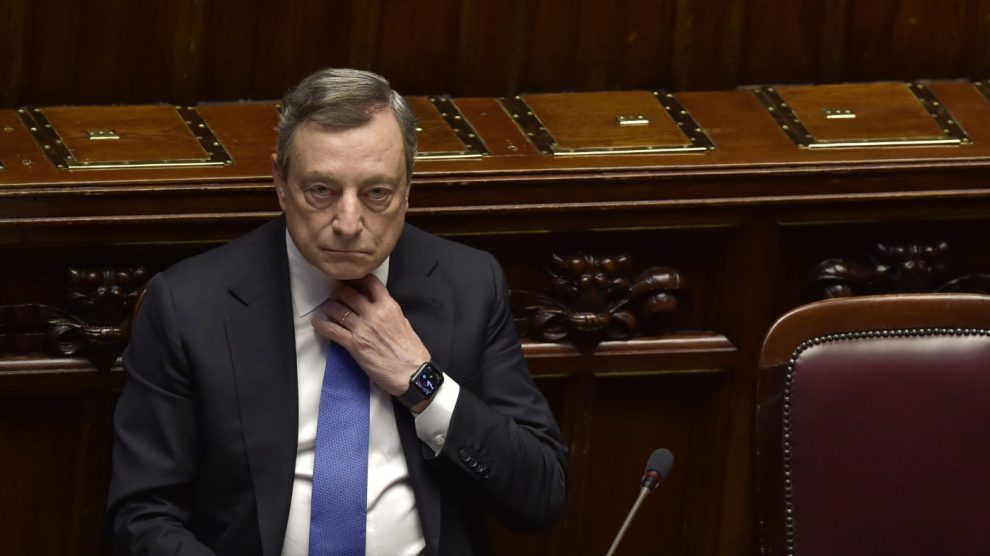What happened? On Thursday, Italy’s national unity government neared collapse as the Five Star Movement (5SM), a coalition partner, refrained from voting confidence in a key Senate bill. Prime Minister Mario Draghi then offered his resignation to President Sergio Mattarella, who instantly rejected it.
- “The majority of national unity that has supported this government since its creation is no longer there,” said the PM to his Cabinet in the evening. “The pact of trust underlying the government’s action has failed.”
- PM Draghi has repeatedly reiterated that he does not wish to continue as PM with a coalition other than the current one.
- Read more on the 5SM’s motives below.
What now? PM Draghi must go back to Parliament and face a vote of confidence on Wednesday. But it’s unclear, given the premises and gauging from his remarks, if his governing majority will remain intact in voting confidence – or if he is willing to stay on after all. This leaves us with the following outcomes, ranked from least to most likely:
- The current governing majority holds on, vowing to support PM Draghi’s agenda. He stays on as PM until the 2023 elections.
- The 5SM either abstains or votes against PM Draghi, while the rest of the coalition (which still makes up a comfortable majority) supports him. Either he or another “technical” figure (Economy Minister Franco?) stays on as PM until the 2023 elections.
- More parties beyond the 5SM (such as Matteo Salvini’s League) refrain from supporting PM Draghi, triggering snap elections in autumn (the first possible date is October 2). Either PM Draghi or a substitute stay on until then.
Why did it happen? The 5SM’s official motivation is its distaste for some provisions in the wide-ranging bill, which includes military aid to Ukraine. More generally, party leader Giuseppe Conte had expressed a wider discontent with the government’s actions on cost-of-living (which Mr Draghi addressed). But the real calculus is electoral.
- Political tensions have been building up for months within the anti-establishment, populist force that has been governing as the largest coalition party since 2018 but has not fared well in what happens to be one of the largest ever coalitions in Italian history.
- The 5SM’s electorate slipped from 32% in 2018 to just over 10% today.
- In June, Foreign Minister Di Maio (a longstanding, central 5SM figure) broke with his party and formed a new pro-government one, along with roughly one-third of 5SM MPs. It’s not a first: party members have been leaving in droves over the past years.
- Experts believe the 5SM would have faded into political irrelevance by the spring 2023 elections.
- The party’s thought leaders make no mystery about Mr Conte’s real intention: to exit the Draghi government and bank on the opposition to win back some voters through a “back to the basics” approach.





